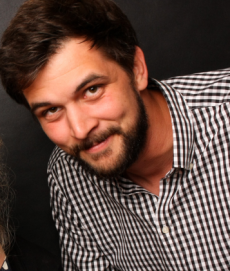Malte Conrady

Institute of Landscape Ecology
Biodiversity and Ecosystem Research Group
Heisenbergstr. 2
Room 515
D-48149 Münster
Tel.: +49 251/83-33918
malte.conrady@uni-muenster.de
Nationality: German 
Rapid evolution in cultivation of plants cultivated from ecosystem restoration
In the course of climate change, it is becoming increasingly important to better understand rapid evolution. Organisms must adapt fast to novel conditions. This is especially valid in plants, since their ability to migrate is mostly limited to seed dispersal. Fast evolution of plants is possible if a population harbours sufficient standing genetic variation. Evolutionary shifts can then become apparent even after few generations in a novel environment.
Specialized companies collect seeds of native species in multiple wild populations with proven natural origin, mix them to ensure high genetic diversity and establish monocultures for seed production. Parts of the seeds harvested from these farms are then sold, while another part is used for establishing the next generation for seed production. After the transfer from natural populations to on-farm propagation, plants face a novel environment with new selection pressures. For instance, intraspecific competition replaces interspecific competition, resource stress is not as severe and heterogeneous as in nature due to fertilization and watering, there is usually pest control, and fitness is ultimately determined by the number of seeds at the time of harvest, rather than across the entire life cycle as in the wild. These conditions might lead to plant adaptation within few generations. Commercial cultivation of native plants for seed production thus represents an unintended real-time evolutionary experiment. We will use the seeds of generations F0 to F4 to grow plants of these different generations side-by-side in a common garden. As these plants will all experience the same environmental conditions, this will allow us to compare heritable phenotypes, and thus to infer evolutionary changes that may have taken place across generations.
Conrady M, Lampei C, Bossdorf O, Hölzel N, Michalski S, Durka W, Bucharova A (2023) Plants cultivated for ecosystem restoration can evolve toward a domestication syndrome. Proceedings of the National Academy of Sciences of the United States of America 120(20):e2219664120. 10.1073/pnas.2219664120 [doi]